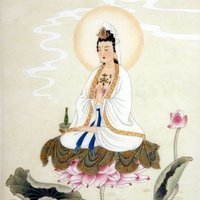-
Content count
265 -
Joined
-
Last visited
-
Days Won
6
Everything posted by 心神 ~
-
The main ones are MandarinSpot, Xiaoma, and Chisho. But I pulled from quite a few for this one.
-
When I look up the meaning of each character, this is what I find: 5. 故常無欲以觀其妙 故 therefore; so; thus; for this reason; because of; cause; reason; former; old; old friend; old matter; incident; event; deliberately; intentionally; to pass away; hometown; native place 常 constant; always; often; regularly; habitual; customary; common; ordinary; normal; fixed 無 not; no; without; lack; absence; none; nothing; nothingness; empty; to not have 欲 desire; want; wish; would like to; intend; plan; appetite; craving; lust; greed; urge; need; request; to be about to; will; shall 以 use; by means of; with; take; because of; according to; so as to; in order to; thereby; and; from; to regard as 觀 look; see; watch; observe; view; inspect; contemplate; reflect; consider; viewpoint; scene; Daoist temple; monastery 其 his; her; its; their; that; those; such; the aforementioned; emphasis marker; should; would; perhaps 妙 subtle; fine; delicate; ingenious; clever; wonderful; marvelous; exquisite; profound; mysterious; key point; hidden secret 6. 常有欲以觀其徼 常 constant; always; often; regularly; habitual; customary; common; ordinary; normal; fixed 有 have; possess; there is; there are; exist; presence; own; happen; occur; certain; some 欲 desire; want; wish; would like to; intend; plan; appetite; craving; lust; greed; urge; need; request; to be about to; will; shall 以 use; by means of; with; take; because of; according to; so as to; in order to; thereby; and; from; to regard as 觀 look; see; watch; observe; view; inspect; contemplate; reflect; consider; viewpoint; scene; Daoist temple; monastery 其 his; her; its; their; that; those; such; the aforementioned; emphasis marker; should; would; perhaps 徼 border; boundary; frontier; outskirts; limit; edge; patrol; guard; intercept; demand; exact; seek
-
Yes, that's how I read it as well, as guidance on how to observe the Tao more objectively. Still only referencing the Wayne Dyer translation, the method is reducing desire so attention isn’t pulled toward outcomes and surfaces. That aligns with wuwei as non-grasping. My point is only that your assertion ‘therefore with or without desire one can see the mystery’ doesn’t apply in the context of the translation we're discussing. But it sounds like we agree on the practical takeaway, even if we’re using different words for it.
-
If your example is someone with no desire who intuitively senses the mystery, that doesn’t challenge the premise, it supports it: desire blocks the mystery, and not having desire is what allows the mystery to be perceived.
-
My understanding of this translation is that desire interferes with seeing and experiencing the mystery of the Tao. Desire blocks the mystery; it doesn’t enable it. ‘Whose desire’ and ‘desire for what’ aren’t central here, because the contrast is between desiring and not desiring. From this perspective, desire (ultimately attachment) is a grasping mind-state that pulls attention toward outer edges and surfaces, which makes the subtle harder to perceive.
-
In maintaining your perspective, I might rephrase it as: “When the Tao is unseen, one observes its inner mystery. When the Tao is seen, one observes its outer edge.” This sharply contrasts the inner mystery with the outer edge. Outer boundary still works well though, I think. Another option is: “When the Tao is sensed, one observes its inner mystery. When the Tao is known, one observes its outer edge.” This carries the idea that conceptual knowledge interferes with intuitive sensing. Sensed takes the place of unseen, knowing takes the place of seen. This version is visually more abstract, but possibly clearer in an experiential sense. I've always been partial to Wayne Dyer’s translation: “Ever desireless, one can see the mystery. Ever desiring, one sees only the manifestations.” I appreciate this one, because it seems to hold the idea that healthy detachment leads to harmony with the Way, and unhealthy attachment leads to disharmony with the Way.
-
Most of this topic is beyond me. But as a lifelong, native English speaker, I feel confident in asserting that almost no native English speaker would choose this phrasing, least of all if the intent is to be clear as possible. “Grok” and “quale” are abstract, philosophical jargon. A clearer phrasing might be: “to intimately understand the inner experience.”
-
Wow, even the modern 性 character looks like a needle and a spool of thread. I suppose plant fiber becomes thread eventually, but that's probably a major stretch, lol.
-
Lady Xing looks like a shamaness holding a distaff and thread, and Master Ming looks like a water buffalo. What do these actually depict?



